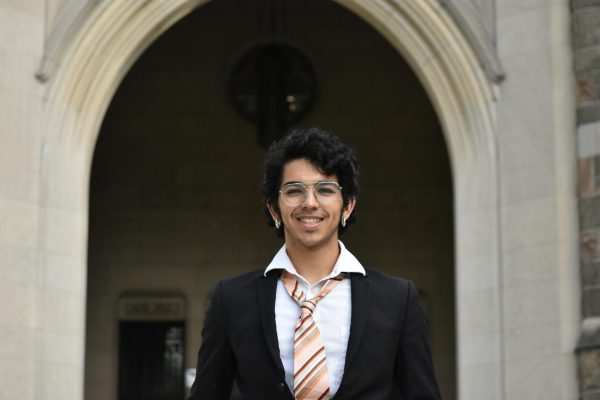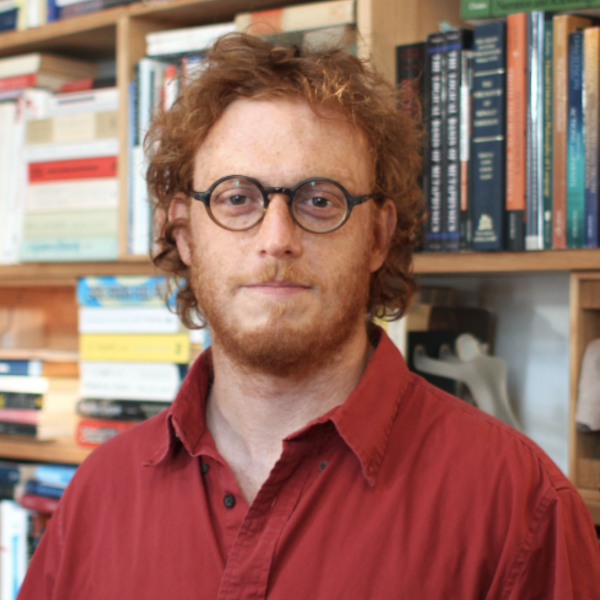Philosophy Curriculum Changes Course
In spring 2021, the philosophy department received a Teaching Race Across the Curriculum (TRAC) Grant from the Fordham University Office of the Chief Diversity Officer. The grant was specifically designed to build more robust curriculums that concern race across a variety of academic and social pursuits at the university.
When the Office of the Chief Diversity Officer announced the grant and encouraged departments to apply, associate professor of philosophy Judith Jones, Ph.D., and assistant professor of philosophy Lauren Kopajtic, Ph.D., worked together to apply for the grant.
In a joint statement provided to The Fordham Ram, the two professors stated that the grant was an essential part in building “meaningful relationships between what we do in the philosophy department and other units and organizations in the university so that our work is truly community-oriented.”
“Our goal for the philosophy department is multiform: we want to provide resources (including course modules and other materials) that any instructor can include in their syllabi so as to do a really good job of including under-represented voices and framing philosophical concepts with an eye to important elements in human history regarding race and intersectional values,” said the professors.
The grant’s application in the department has been conceptualized in a number of ways, but one of the most concrete plans comes in the form of educating philosophy instructors. The grant has allowed the department to craft syllabus incubators for instructors beginning in the spring 2022 semester.
These incubators are designed to alter the core philosophy classes in specific ways, especially by incorporating figures and readings that represent the traditionally under represented voices regarding race and general intersectionality.
The grant is designed to boost and rework the current structure of philosophy classes, not to entirely overhaul the curriculum. As it currently stands, many sections of the core classes, Philosophy of Human Nature and Philosophical Ethics, cover figures “who represent a variety of racial and cultural traditions that are not the thus-far-dominant figures and traditions,” Jones and Kopajtic said. These existing concepts are joined by required course content that frames the core-class central topics around philosophical topics regarding race and related issues.
Associate professor of philosophy Samir Haddad, Ph.D., fully breaks down the requirements of core philosophy classes:
“In Philosophical Ethics, the mandate is 50% Kant and Aristotle, which leaves the other 50% open. In the Human Nature class it is to have 60% be certain authors from a traditional western philosophical canon. The other 40% is left up to the instructor. Both courses additionally require that at least one author taught comes from a group traditionally underrepresented in philosophy.”
In the words of Jones and Kopajtic:
“We want to build on this existing inclusion to make our required (and elective) courses still more representative and valuable around questions of race and identity, and around questions that often intersect with these: gender and sexuality, culture, class, etc. But the central focus of the grant work is specifically around race, and we have to confront the fact that philosophy in general (as an academic discipline) has a history that has not been sufficiently racially inclusive and global in its variations.”
By expanding the core of the philosophy department, the grant will also help continue the missions of Jesuit tradition in education. As it currently stands, the Jesuit education (in which the core curriculum is based) calls heavily upon the western canon of traditional philosophers and respective texts. “There are important texts, figures and ideas in the western canon,” said Jones and Kopajtic, “but these resources do not exhaust the possibilities for meaningful discussion of issues of human nature, ethics and all the other areas explored in the core.”
By teaching non-western and under represented traditions alongside the western canon, philosophy students will have stronger opportunities to engage in discussion about the value of western sources.
“Everything can be enhanced by inclusion, so it’s not an either-or,” said Jones and Kopajtic. “This doesn’t mean that the western traditions don’t have to change as a result of this inclusion, since real inclusion does in fact mean change, through vulnerability and receptivity to critique and growth.”
While the Teaching Race Across the Curriculum Grant is a more recent development for philosophy, the department has been working towards greater diversity and inclusion projects for years.
Haddad expanded on the philosophy department’s series of projects, which include a “Minorities and Philosophy” chapter established by graduate students a few years ago.
“We also set up an internal website for instructors providing diversity resources a few years ago, and we’ve had training workshops focused on these questions, both teaching minority figures but also philosophies of race.”
The TRAC Grant is one of the many initiatives being developed at the university level in order to provide students with an education that is based on much more global and inclusive experiences combined with contemporary life.
Recently, Fordham has tasked the Core Curriculum Committee (CCC) with the project of reworking the core curriculum across all departments at the university-level.
Associate professor of history Christopher Dietrich, appointed as the chair of the CCC, updated The Fordham Ram on the development of this project:
“Discussions regarding a new core curriculum are just beginning. Those discussions should be an inclusive process, one that can fully take into account the greater university mission of helping students develop the curiosity, self-motivation and skills that lead to life-long habits of critical thinking, careful observation, articulate expression and moral reflection.”
Dietrich continued, discussing structural inspirations for a reworked curriculum:
“A new core should embrace the potential of small, rigorous classes to help teach students to sift through evidence, analyze the value of competing arguments and build the tenacity and confidence they need to have faith in their own analytical capacities.”
According to Haddad, recent developments in academics, especially philosophy, have begun to reflect on similar ideals as Dietrich described through the use of more diverse and inclusive topics:
“My sense is … I’ve seen a lot of syllabi and have been involved in the training of graduate student instructors for a number of years. While still respecting the requirements of the core as it stands, I think the way that philosophy is getting taught is much more diverse at Fordham than it was, say, 15 years ago when I started.” Haddad continued, “Without having the hard data … I feel like we’re in a position now where it’s the norm that syllabi will include underrepresented figures and topics. It’s the exception now not to have that. It’s much more common, for example, in the Philosophical Ethics and Human Nature classes, that philosophy of race or issues and questions of race come up, which is in line with the priorities of the university at the moment.”
The use of the TRAC Grant in the philosophy department shows a step forward for the university, an indication that the curriculums are updating to the modern sensibilities of students.
“We were inspired by the deep need of our students to encounter sources, critical perspectives and creative opportunities in our classes that would better speak to the realities of experience in the twenty-first century,” said Jones and Kopajtic. “We were also inspired by the energy flowing in the whole discipline of philosophy … to deeply and vulnerably reflect on the kinds of growth and change the field might welcome in light of both of our histories and our shared human futures.”

Sebastian Diaz is a senior from Chapel Hill, N. C. who is double majoring in journalism and film. After starting as a news reporter for The Fordham Ram...














































































































































































































